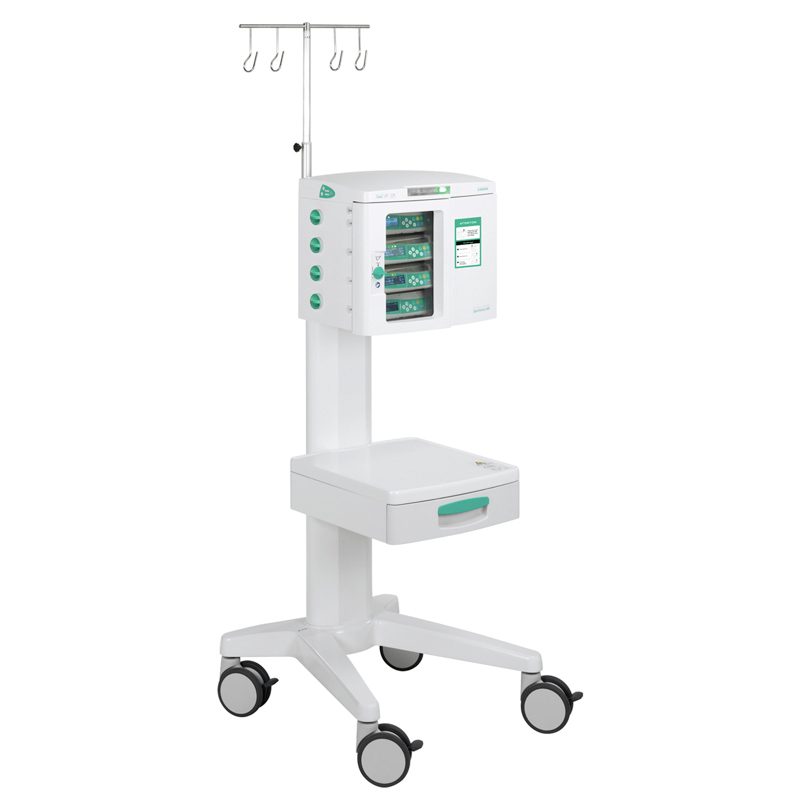SpaceStation MRI has received 510(k) clearance from the US Food and Drug Administration. The news was announced today by B. Braun Medical.
SpaceStation MRI allows Space® infusion pumps to continuously deliver medications to patients within the MRI suite.
“This clearance allows us to expand our infusion therapy portfolio by providing seamless infusion management across multiple care settings,” said Jonathan Stapley, Director of Marketing for Infusion Systems at B. Braun Medical. “Our Space Infusion System allows standardization of large volume and syringe pumps on the same workflow with one integration,” Stapley continued.
The SpaceStation MRI is designed to shield Space infusion pumps against 1.5-T and 3.0-T magnetic fields to protect the MR scanner and provide interference-free images. Long infusion lines are no longer needed and hospital-wide Space infusion pumps are now able to safely transition patients into the imaging suite with the SpaceStation MRI.
“Clearance of the SpaceStation MRI represents a significant development for patients and healthcare providers,” said Angela Karpf, MD, Corporate Vice President, Medical Affairs at B. Braun Medical. “It will allow patients to be safely transitioned into the MRI suite without the interruption of infusion therapy since there is no need to switch to an alternative pump. The versatility of the SpaceStation MRI accommodates adult, pediatric, and neonatal patients.”
Key features of the SpaceStation MRI include:
- Each station holds up to 4 Space pumps, including the Infusomat® Space® Large Volume Pump, Perfusor® Space® Syringe Pump, and the Perfusor® PCA Syringe Pump.
- Integrated TeslaSpy® continuously monitors magnetic field strength to provide proper placement and positioning of the SpaceStation MRI.
- Pump status window allows for visibility of all infusion pumps with a centralized alarm display to continuously monitor the status on all infusions during imaging.
- Standard Space infusion lines can be used with the Infusomat Space Large Volume Infusion Pump and non-dedicated disposables are available for the Perfusor Space Syringe Infusion Pump.
- Full drug library software available with DoseGuard™ (Dose Error Reduction Software) Drug Library Development Software, powered by FDB Infusion Knowledge™ allowing online collaboration, access to FDB reference materials, and customizable drug hard and soft limits.
B. Braun offers a full-line of infusion pumps, drug library management, dose error reduction, and interoperability software. The company has a space efficient design which safely integrates with major EMR systems, asset tracking devices, alarm management technologies, and follows the IHE PCD standards in communication and integration. Their integration solution has been shown to improve IV pump utilization by 167%, resulting in $1M immediate capital savings through reduced inventory requirements1.
B. Braun’s DoseGuard Software is the only drug library development solution available that fully integrates FDB’s Infusion Knowledge Portal2. This provides robust evidence-based drug limits with frequent content updates, collaborative authoring tools, and companion audit trails that enable site administrator customization of drug library records for streamlined upload and incorporation into smart pump software.
In addition, B. Braun offers DoseTrac® Software that provides real-time data for consistent documentation and recognition of issues that may lead to an adverse event. DoseTrac Software and Analysis Service have helped clients achieve up to 100% DL compliance, up to 99% reduction in alerts and significant reduction in infusion related medication errors3.
References
1Versus™ Locating Advantages for Healthcare™: Asset Management Case Study: McLauren Flint, 2017
2 Director of Strategic Alliance, FBD Infusion Knowledge™ (personal communication, October 3, 2018)
3 Vitoux R, Chang H, Lehr J. Establishing benchmarks and identifying opportunities to reduce alert fatigue associated with smart infusion pumps. Poster presentation at the American Society of Health-System Pharmacists Midyear Clinical Meeting, December 2015.
